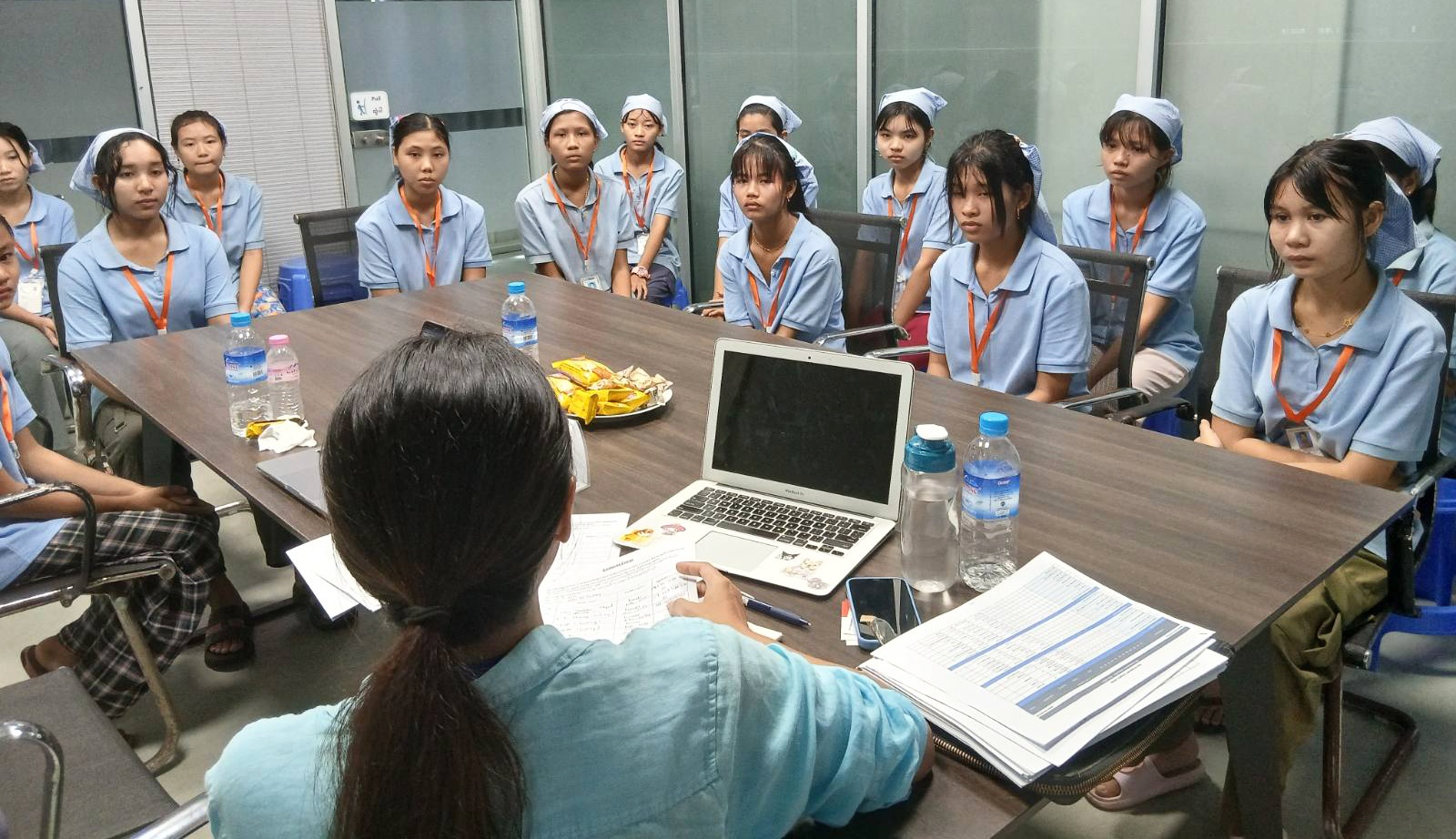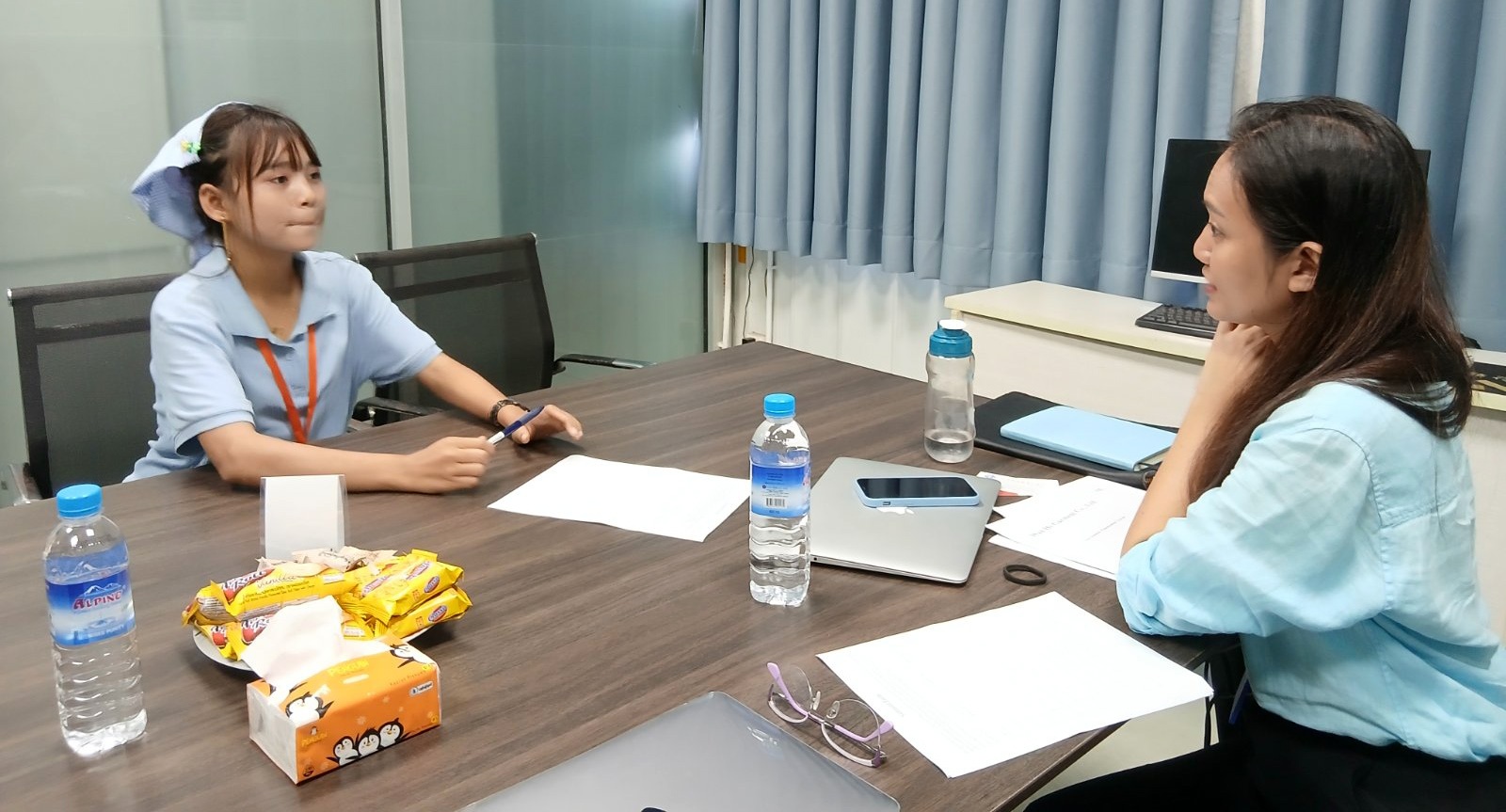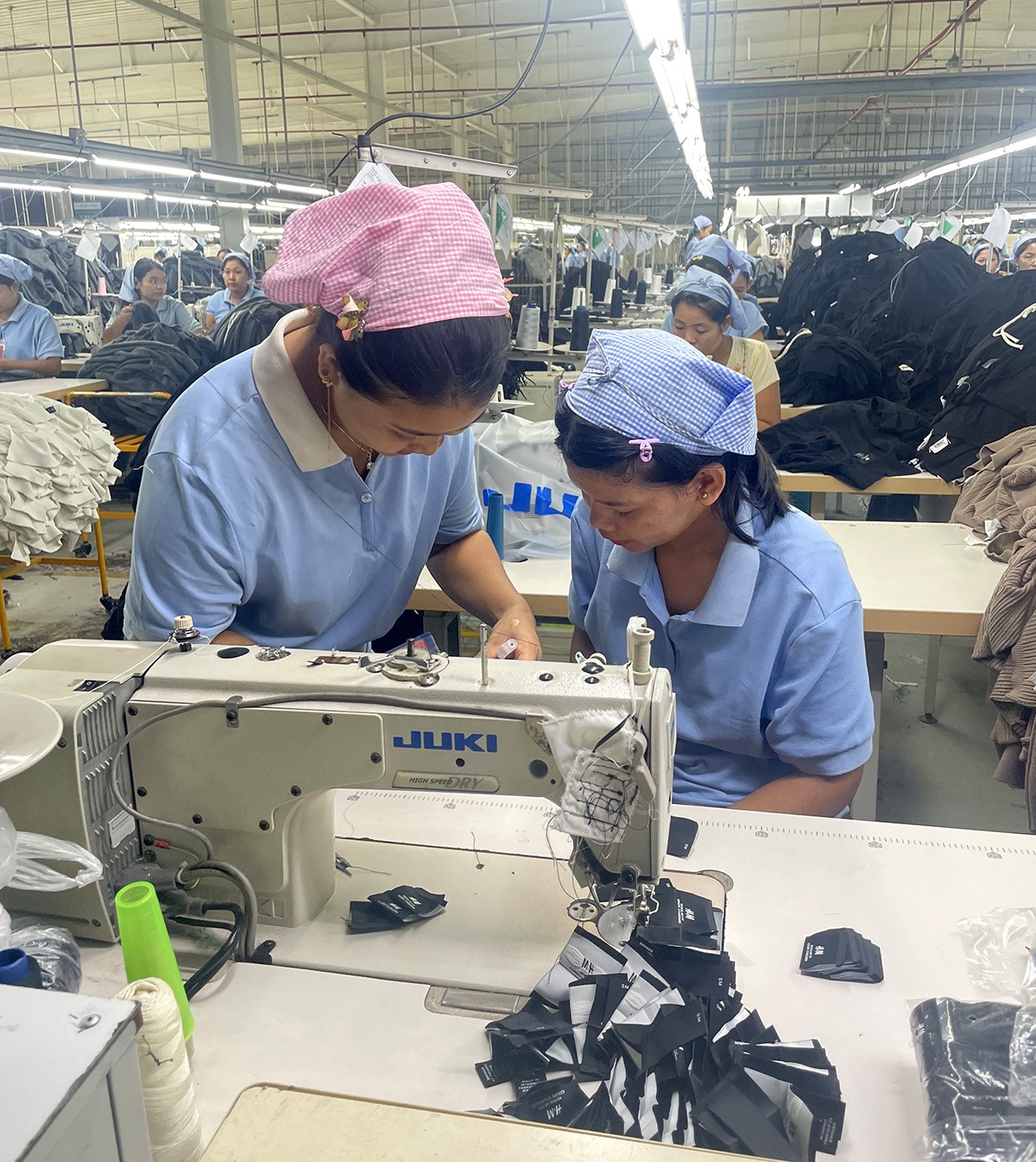

The Centre's Myanmar Project Manager during a focus group discussion with the factory's young workers
In 2019, The Centre for Child Rights and Business assessed conditions at a garment factory in Myanmar, a supplier for a major fashion brand known for employing many young workers. The findings highlighted numerous risks, including unclear age verification, long hours, gaps in health awareness, and limited support systems.
Rather than seeing young workers as a liability, the factory chose to invest in long-term systemic change. Five years after the assessment, The Centre’s Myanmar team revisited the factory to understand the progress they had made in creating a supportive and compliant environment for young workers in the years since.
From Policy to Practice
Guided by The Centre’s recommendations, the factory introduced:
Stronger recruitment systems with age checks, parental consent and staff training
Hazard-free work assignments, monitored monthly and supported by coloured lanyards to help supervisors ensure compliance
Quarterly training for young workers and supervisors on safety and workplace norms
Annual reproductive health sessions, run with external partners
These changes have been reinforced by ongoing brand engagement and support, ensuring compliance with codes of conduct and strengthening trust between the factory and its buyers.
Business Benefits
Young workers have proven to be fast learners, highly productive and reliable in key departments like linking. Clear systems also reassure buyers, reduce turnover and strengthen brand relationships.
The HR manager explained:

“These opportunities have significantly improved the lives of young workers by fostering a sense of self-confidence and enabling them to manage their own income. As a result, their overall well-being has been enhanced. Therefore, it is highly recommended and encouraged to continue creating job opportunities and actively hiring young workers, as it contributes positively to both individual development and broader community stability.”


The Centre's Project Manager interviewing on of the young workers
For 17-year-old Tay, the job has been life-changing:

At first, I found the work challenging, but supervisors were patient and kind. Now, I feel more confident, I’ve made friends, and our family has been able to pay off debts and start saving. One day, I hope to become a supervisor too.”

The factory’s journey shows how systemic investment in young worker management benefits both people and business. By prioritising safe recruitment, training and supportive supervision, the factory has:
Improved young workers’ wellbeing and confidence
Increased productivity and reduced turnover
Strengthened buyer trust and maintained stable relationships
Contributed to community stability at a time of national uncertainty
For Tay and many others like her, these opportunities represent dignity, growth and a path toward a more secure future. For factories, supporting young workers through structured, long-term systems brings long-term business benefits.

One of the young workers getting help from a supervisor on the production line
By using this website, you agree to our use of cookies. We use cookies to provide you with a great experience and to help our website run effectively.